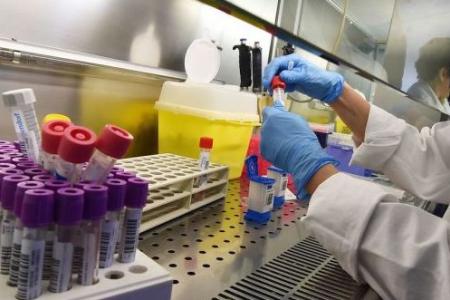Researchers worldwide race to find vaccine, hopefully in 6 short months
Scientists from the US to Australia are using new technology in an ambitious, multimillion-dollar drive to develop a vaccine in record time to tackle China's coronavirus outbreak.
It has spread rapidly since emerging late last year in China, killing more than 800 people there and infecting over 37,000.
Coming up with any vaccine typically takes years and involves testing on animals, clinical trials on humans and regulatory approvals. But several teams of experts are racing to develop one quicker, backed by an international coalition, and Australian scientists hope it could be ready in six months.
"It is a high-pressure situation and there is a lot of weight on us," said senior researcher Keith Chappell, part of the group from Australia's University of Queensland. But he took "some solace" knowing several teams around the world were engaged in the same mission.
"The hope is that one of these will be successful and can contain this outbreak," he said.
But even a time frame of six months looks agonisingly slow with the virus, believed to have emerged from a market selling wild animals in Wuhan city.
Efforts are being led by the non-profit Coalition for Epidemic Preparedness Innovations. It is pouring millions into four projects globally and has put out a call for more proposals.
Its chief executive Richard Hatchett said the aim was to start clinical testing in 16 weeks.
German biopharmaceutical company CureVac and US-based Moderna Therapeutics are developing vaccines based on "messenger RNA" - instructions that tell the body to produce proteins - while Inovio, another US company, is using DNA-based technology.
Such vaccines use the genetic coding of the virus to trick the body's cells into producing proteins identical to those on the surface of the pathogen, said deputy director Ooi Eng Eong, of the emerging infectious diseases programme at Duke-NUS Medical School in Singapore.
The immune system learns to recognise the proteins so it is ready to find and attack the virus when it enters the body. - AFP
Get The New Paper on your phone with the free TNP app. Download from the Apple App Store or Google Play Store now



